[WEBINAR] Towards a NO-Plastic Sea: EU policies and Marine Protected Areas actions
This webinar on the 10th of November at 11 AM CET will look at EU policies and Marine Protected Areas actions
- Tuesday, 10th of November 2020
- 11:00 AM CEST
- participation is free but registration is needed. Register here.
Within the context of the European Green Deal, and in particular the Circular Economy Action Plan and Biodiversity Strategy, this webinar will explore Marine Protected Areas and plastic pollution. We will take a closer look at some of the issues of addressing plastic pollution in Marine Protected Areas, through a number of case studies across Europe. The session will bring together EU policy makers, European MPA managers, representatives from the private sector, and other stakeholders, to discuss the challenges and potential ways forward. The session will serve as an opportunity for the exchange of knowledge, ideas and recommendations about the implementation of the relevant elements under the European Green Deal.
Agenda:
Welcome from EUROPARC, introducing the topic from the Protective Areas perspective
By Fernando Pinillos, Communications and IT Officer
Welcome from IUCN from the plastic challenge perspective
By Alberto Arroyo Schnell – International Union for Conservation of Nature (IUCN).
Setting the scene: EU policies against marine litter and the Green Deal perspectives
By Michail Papadoyannakis – European Commission, DG ENV.
Case Study: The Plastic Waste-Free Islands initiative
By Joao Sousa – International Union for Conservation of Nature (IUCN).
The Plastic Waste-Free Islands initiative (PWFI) is part of IUCN’s global Close the Plastic Tap Programme. Working in three regions, the Caribbean, the Mediterranean and Oceania, the initiative’s overarching goal is to drive the circular economy agenda forward and to reduce plastic waste generation and leakage from islands. Joao Sousa’s presentation will focus on the Mediterranean region, exploring in particular the example of Menorca, which was declared a Biosphere Reserve by UNESCO in 1993.
Case Study: The MEDSEALITTER project: Developing Mediterranean-specific protocols to protect biodiversity from litter impact at basin and local MPAs scales
By Odei García-Garin – University of Barcelona/ Interreg MEDSEALITTER project.
The MEDSEALITTER project developed standard monitoring protocols to protect biodiversity from marine litter. The monitoring of marine litter is essential to evaluate risks and mitigation policies. Furthermore, to understand the possible sources and pathways through the environment and to promote new legislative initiatives against plastics. The MPA managers are the key component to conduct a regular marine litter monitoring within the Marine Protected Areas.
Discussion and other perspectives.
All participants will have the opportunity to raise their comments and questions, and to hear the perspectives from the private sector and other stakeholders.
Get to know the speakers!

Michail Papadoyannakis has worked in the European Commission on research, industrial policy and environmental issues, covering also project management and international relations. Within the Environment Directorate General he has been dealing mainly with issues of waste management, hazardous substances and, since 2009, marine environment issues focusing on the implementation of the EU Marine Strategy Framework Directive, links with Regional Seas Conventions around Europe and marine litter.

Joao Sousa is a Marine Project Officer at International Union for Conservation of the Nature (IUCN) where he focuses on collaborative solutions to mitigate plastic debris in the world’s oceans. This involves coordinating research to inform policy, creating platforms to encourage innovation and sharing of best practices, and cooperating with industry to change behavior. Joao also works on conservation and mitigation for the oil and gas industry in the North Sea (decommissioning platforms) and private sector engagement for best practices in the production, extraction and transformation sectors in Mozambique.

Odei García-Garin is a biologist PhD candidate currently working at University of Barcelona on the occurrence, distribution and abundance of marine litter and its impact on marine fauna. He is focused on analysis of microplastics and plasticizers, techniques of remote sensing and monitoring of marine vertebrates.
This webinar is organised by
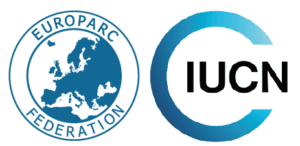
The EU Green Deal immediately eroded by the industrial agriculture lobby?
© Agriculture_European Commission
EUROPARC’s President Ignace Schops responds to the vote on the Common Agricultural Policy
Last week, the European Parliament voted the Common Agricultural Policy (CAP) 2021-2027. The result contrasts sharply with the objectives of the EU Green Deal of European President Ursula von der Leyen and EU Vice President Frans Timmermans.
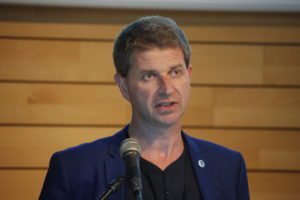
Ignace Schops
Is this about a sustainable and socially responsible food supply or about a well-organised hold-up by the large industrial agri-companies, that seem to show little concern for the health of our planet?
The EU Commission’s initial proposal was quite defensible because it was –in some ways- more in line with the objectives of the EU Green Deal, even if it had been proposed by the previous Commission. Some European Parliament amendments were trying to improve it and makes it more coherent with the Farm to Fork Strategy.
The EU’s “From farm to fork” strategy promotes short-chain agriculture, aims at socially correct, sustainable reform with much more focus on nature and climate. The EUROPARC Federation, is very supportive of farm to fork strategy with the necessity for farms in and around Protected Areas to work in a more constructive partnership.
But what happened? A majority coalition of MEPs rejected the amendments that would bring about closer alignment to the Green Deal, potentially undermining all progress. This was the same parliament that voted the Green Deal, approved the EU Biodiversity Strategy 2030 and supported the progress in making an EU climate law!
Poisoning the CAP is not only a lethal injection for the health of our planet, agro-industry is also paid generously for it. Agriculture accounts for 40% of the total European budget. That is a great deal of money. 80% of this budget goes to the large agro-industrial companies which represent only 20% of European farmers. It becomes clearer when you turn the argument around. 80% of European farmers have to survive on just 20% of the already poisoned budget.
On the heels of many thousands of farmers, industrial agro-agriculture can continue with the natural and environmental conditions that give agriculture a future just to die. This decision is not for, but above all, against the well-meaning farmers with responsible craftsmanship. Those who do have an eye for bees, butterflies and birds and who want to help and build a sustainable, climate-proof and nature-friendly food supply.
Ladies and gentlemen of the EU Parliament: please inform yourselves, do not just listen to the agro-industry lobbyists. Do not be tempted by fake facts. The industrial farming lobby is pleased, they say this decision gives clarity to the farmers. What clarity? and to which farmers? Financial clarity for just a few or deadly clarity for the health of our planet?
So, EUROPARC calls upon farmers to unite with nature and climate movement! We are natural allies! Things can and must be done differently if we are to have farming that is good for people and nature!
Ignace Schops
VI Conference of the Iberian Network of the European Charter for Sustainable Tourism
Logo of "The Charter"
On 4-5 of November, the Iberian Network of the European Charter for Sustainable Tourism will host its VI Conference!
The municipality of Sabugal, EUROPARC Spain and EUROPARC Federation will organise the sixth conference of the Iberian Network of the European Charter for Sustainable Tourism (ECST), which will take place online on the 4th and 5th of November 2020. At the conference participants will be able to get to know the ECST as a participatory planing instrument for sustainable tourism in protected areas (PAs). The conference is for free, but registration is needed.
The Conference will be held in Zoom platform and will be in Portuguese and Spanish with simultaneous translation Pt-Es.
You can register here!
The European Charter for Sustainable Tourism Network in Spain and Portugal is an initiative of the Spanish and Portuguese parks, which have obtained this recognition, together with EUROPARC. It was created with the aim of encouraging communication between the actors involved in the project and promoting actions and networking in the Iberian Peninsula. Its organisation alternates between Portugal and Spain. The Network comprises a total of 35 protected areas, 27 in Spain and 8 in Portugal.
Why join the conference?
The conference will:
- Deepen issues related to sustainable tourism and the ECST instrument, which are of special interest to PAs;
- Promote the exchange of experiences and present some practical cases developed in the PA of the ECST Network in relation to the Covid-19 context and the proactive way in which these parks had to manage and adapt to the situation;
- Strengthen and consolidate the network operation of the PAs and tourism companies in Spain and Portugal that are recognized as Charter partners of the ECST;
- Identify communication, promotion, organization and sale strategies for ECST destinations and their member companies;
You can find the programme here.
Who should join?
The conference is addressed specifically to:
- Directors and technical personnel from Protected Areas with ECST (or in the process of joining);
- Tourist companies adhering to the ECST Phase II or who are members of the Forum;
- Travel agencies adhering to the ECST Phase III or who are members of the Forum;
- Public / private entities in Protected Areas with ECST or in adherence;
- Other corporate bodies, associations and other agents, students, etc.
The conference is an excellent opportunity to get to know other ECST partners, address problems or opportunities and network with like-minded institutions and Protected Areas.
NEW: Nature Regional Landscape Parks – Where Policy meets Pratice
EUROPARC’s new position paper, launched at the Real “Green” Deal workshop on 22 October 2020, highlights the importance of Nature Regional Landscape Parks.
Nature Regional Landscape Parks – Where policy meets practice
Nature Regional Landscape (NRL) Parks are strong partners to address the Green Deal challenges at a local level, working on the implementation issues of Biodiversity Strategy 2030, 2030 Climate Target Plan, Farm to Fork Strategy and CAP and Forestry Strategy, as well as policies associated with health, sustainable tourism, culture and environmental education. However, these park remain an undervalued resource, to create “Living Landscapes“, that are good for nature and good for people.
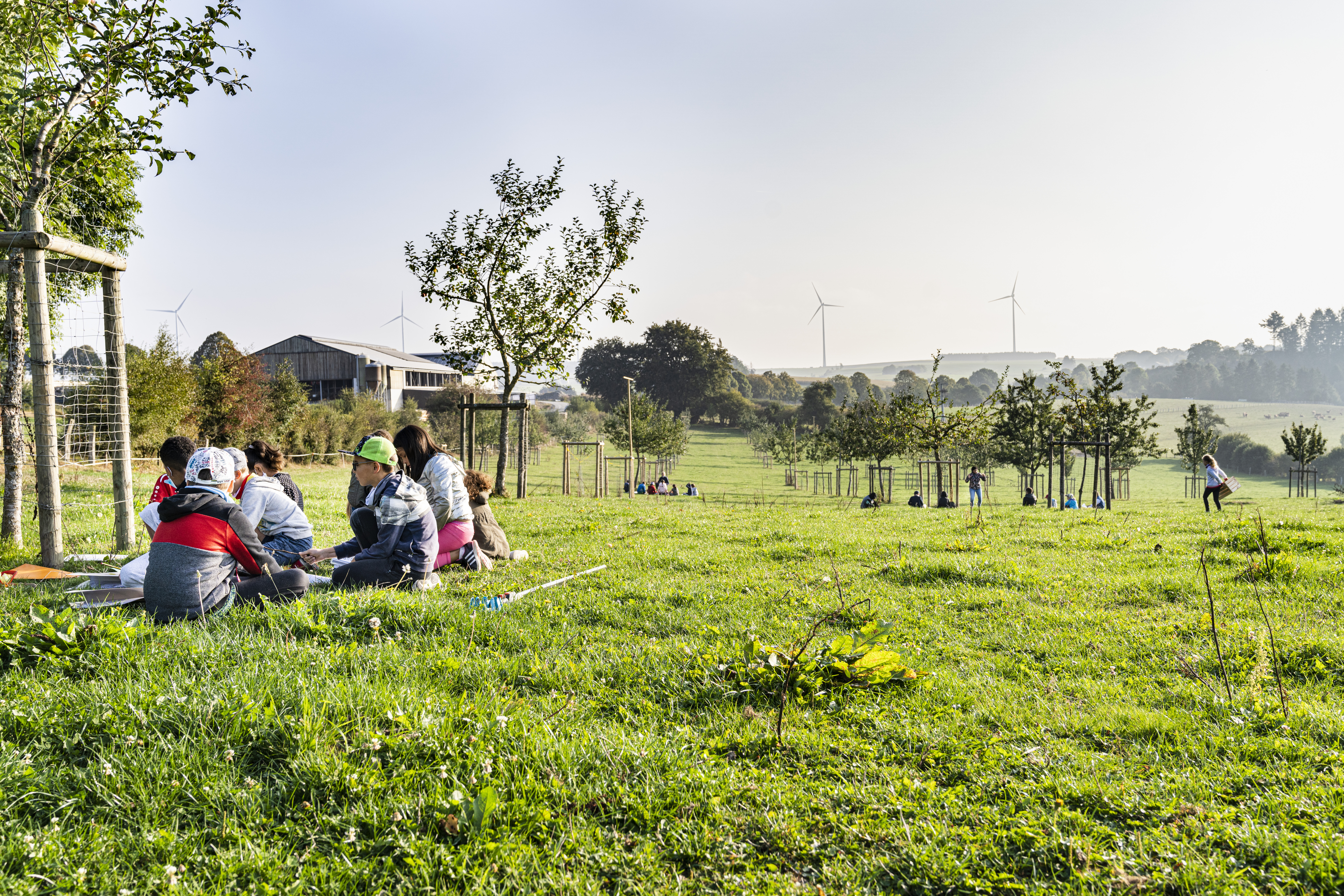
Naturpark Our, photo: Caroline Martin.
NRL Parks have the potential to prevent current rural abandonment, promote community involvement and support green jobs. They create sustainable tourism destinations, and encourage sustainable agricultural practices and partnerships between farmers and protected areas management. Additionally, they are excellent places for environmental education. Today, EUROPARC launched the new policy paper ” Nature Regional Landscape Parks – Where Policy meets Practice”.
The policy paper shows that it pays off to strengthen the position of NRL Parks because they can help ensure a better implementation of far-sighted approaches for a sustainable rural Europe.
The paper collates NRL Parks experience from across Europe, and indicates the policy framework that they implement. It shows the potential locked in these parks to deliver more.
Download the Policy Paper here!
The Real “Green” Deal workshop
The position paper was launched at the workshop The Real “Green” Deal, which was organised in the framework of the 18th European Week of Cities and Regions. The online workshop focused on the vital role of Regional Natural Parks in a sustainably managed Green Europe. It was moderated by EUROPARC Executive Director Carol Ritchie. She was joined by the following speakers:
- Eric Brua, Director, Natural régional Parks french fédération, France.
- Katy Foxford, Tourism Support Officer, Yorkshire Dales National Park Authority, United Kingdom.
- Stefan Müller-Altermatt, President of the Swiss Parks Network and Member of Parliament, Swiss Parks Network, Switzerland.
- Nina Zitz, Project coordinator, Association of Austrian Nature Parks, Austria.
The speakers from all over Europe presented different aspects related to Regional Nature Parks, such as climate change protection, ecological infrastructure for biodiversity, sustainable agriculture and youth empowerment.
National Regional Landscape Parks are ideal testing grounds for agricultural practices that play an active role in the preservation of natural areas
Said Eric Brua during his presentation on sustainable agricultural practices in NRL Parks. Sustainable agriculture is a topic that is especially present at this time, as the European Parliament will vote on the new CAP this week. In his presentation he demonstrated the great work the Nature Regional Parks in France or doing with farmers to establish sustainable agricultural practices.
Nina Zitz presented the work of Austrian Nature Parks on climate change adaption and mitigation. The presentation of projects like “Wöffies“, “Climate Walk” and “KlimaAlps“, showed what Austrian Nature Parks are doing to both combat climate change and raise awareness on the topic. The aim is to develop a common climate strategy for nature parks.
Stefan Müller-Altermatt showed how the Swiss Nature Parks make a significant contribution to ecological infrastructure. Not just by preserving, creating and maintaining core areas, but also by remedying deficits. The latter is done in cooperation with agriculture and forestry. Additionally he said that contrary to popular believe, lack of biodiversity in Swiss, especially in the densely populated lowlands is a problem. The Swiss Nature Parks work on combating this biodiversity loss, for example by bringing sheep from Engadin to the Beverin Nature Park.
Katy Foxford then gave examples of how the Youth Manifesto can help keep rural areas alive, by involving young people in decision making processes and attracting them to rural areas through job opportunities or affordable housing. She highlighted the importance of including young people in the implementation of policies like the EU Green Deal.
Through Mentimeter, Carol Ritchie asked participants what they think “regions” need to do, to ensure the potential of NRL Parks to deliver the Green Deal. You can see the results here:
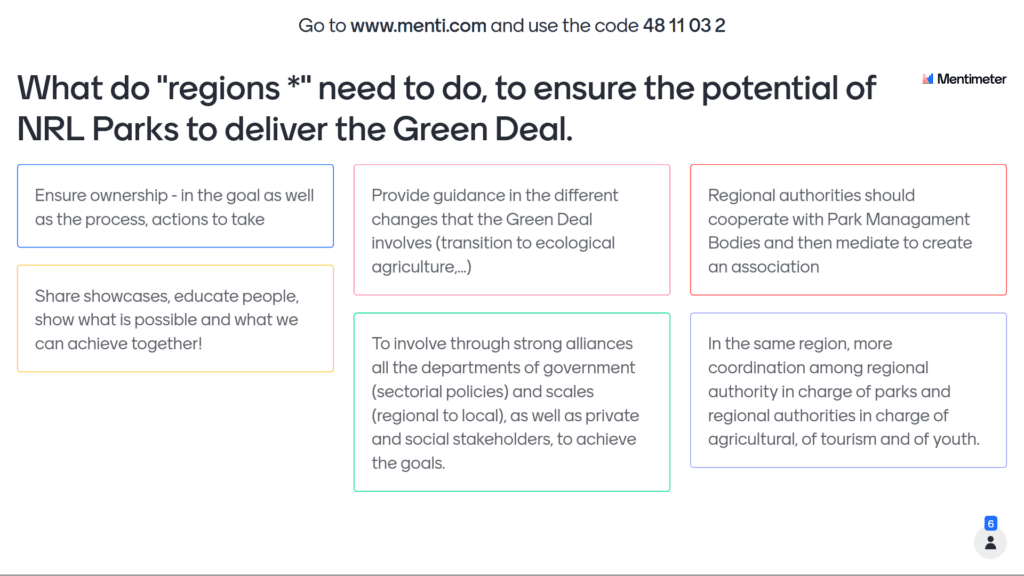
National Regional Landscape Parks are natural allies to develop sustainable agriculture business in rural areas and to make people stay and work in rural areas – particularly for young people
Said Roby Biwer, member of the European Committee of Regions. He closed the webinar and highlighted that, National Regional Landscape parks also have a role to play in Farm to Fork, Sustainable Development Goals and the Biodiversity Strategy – they can be accelerators to make these policies more central at regional, national and European level.
If you could not attend the workshop, a recording will be made available here.
Download the PowerPoint presentations here:
Nina Zitz – Association of Austrian Nature Parks
Stefan Müller-Altermatt – Swiss Parks Network
Katy Foxford – Yorkshire Dales Natioanl Park Authority
Eric Brua – Natural Regional Parks Federation France
Download the Policy Paper here!
Call to action
In order to fully utilize the opportunities of Nature Regional Landscape Parks in implementing an integrated, visionary approach for a sustainable rural Europe, EUROPARC calls upon the European Union and its Member States , local and regional authorities to be actively involved in the work of Nature Regional Landscape Parks with protection, valorisation and sustainable development of the natural and cultural heritage of their territories. EUROPARC Federation also seeks that EU institutions, better integrate Nature Regional Landscape Parks in EU policies, recognising their implementation role, to give them the support and access to tools and funding required to carry out efficiently all actions needed. Europe’s Nature Regional Landscape Parks are the “real” Green Deal, with the potential to be the catalyst of local solutions that will bring about the changes needed to create a more sustainable Europe
What are Nature Regional Landscape Parks?
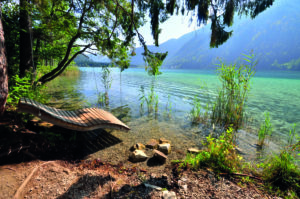
Nature Park Weissensee, by Ewald Neffe
The term, Regional Nature Landscape Parks contains a wide variety of large scale Protected Areas across Europe. These include, Nature Park, Natural Park, Regional Park, Landscape Park, Regional Nature Park, Protected Landscape Area or Area of Outstanding Natural Beauty.
Overall, NRL Parks have been designated, with the aim to integrate the protection of biodiversity with sustainable land use and socio-economic development in their territories.
Currently, there are almost 900 Regional Nature Landscape Parks in 22 European countries, which is about 8 % of the European Union (+ Norway and Switzerland). Although they differ across countries, they share common principles in terms of purpose, mission and governance. They are important players when it comes to rural development, sustainable agriculture, biodiversity protection and nature education (among others).
Head over to our knowledge hub and read case studies from Nature Regional Landscape Parks in our Knowledge Hub!